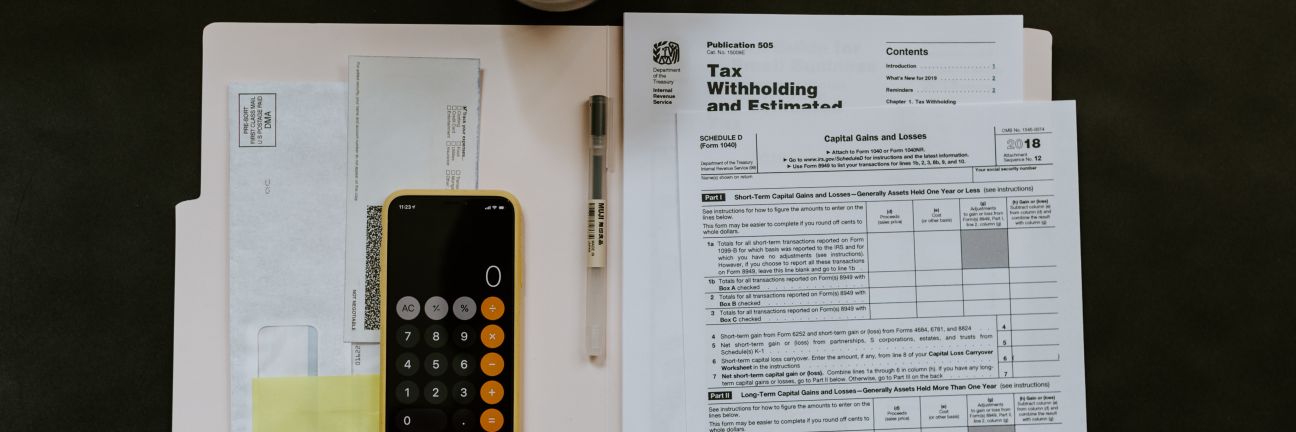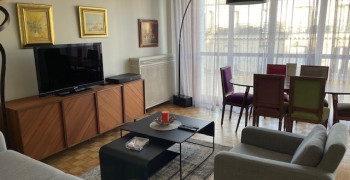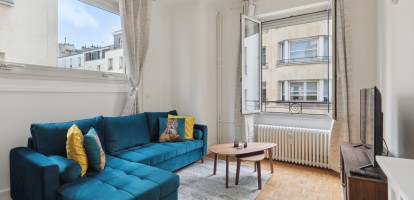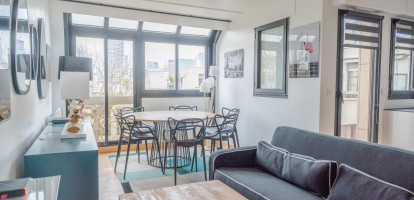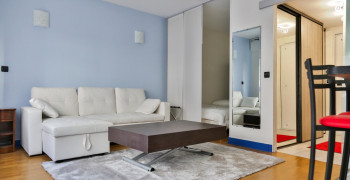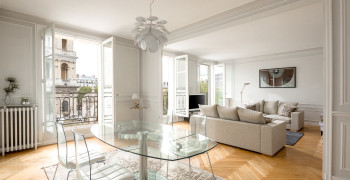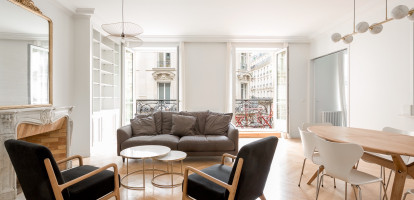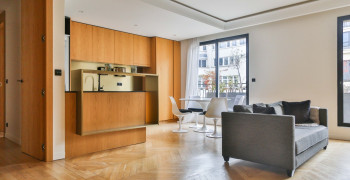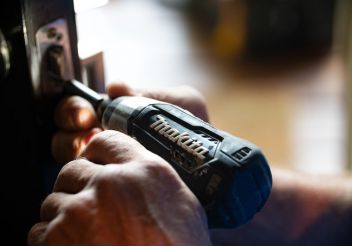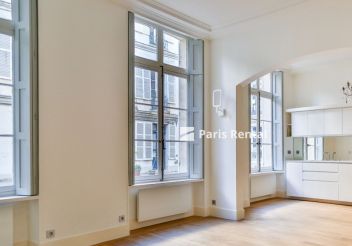In France, income generated from furnished rentals is subject to the progressive income tax scale and is not categorized as property income (tax treatment of empty rental property). When you declare your furnished rental revenue in France, you must first determine the suitable tax status between:
Then you will have to choose the most suitable tax schemes to declare your furnished rental income for your status. This article will explore the differences between the LMP and LMNP status, including their conditions, tax benefits, available revenue declaration regimes, and legal formalities. It will help you decide the proper tax status and systems to improve your financial health.
Suppose your annual rental income in France is below €23,000 or lower than the combined income of your tax household, and no member of your tax household is registered in the Trade and Companies Register. In that case, you are considered a non-professional furnished rental operator (LMNP - loueur en meublé non professionnel) and are taxed under the Industrial and Commercial Profits (BIC - Bénéfices Industriels et Commerciaux) category.
Nota Bene: The rental income is calculated based on your total rental earnings, including the building maintenance charges.
3. Tax benefits of the two tax regimes of LMNP
Flat-rate regime of LMNP:
The micro-BIC scheme applies if the non-professional landlord’s annual rental revenues do not exceed €70,000. Under this regime, you benefit from a 50% deduction on your revenues (only half of your revenues will be taxable). However, you are not allowed to create deficits. This tax regime is advantageous if your rental-related expenses are less than 50% of your revenues.
The real regime of LMNP:
The actual regime of LMNP applies to rental revenues exceeding €70,000 per year or can be used upon request by the tax administration even if they are lower than €70,000. What does this entail? You can deduct all rental expenses (including interest on loans, taxes, repairs, property management fees, etc.) and depreciation (you can deduct a portion of the property's purchase price from the rental income). As a result, your taxable revenues, and therefore your taxes, are reduced! For example, for an apartment originally purchased for €400,000, you can apply a depreciation rate of 2%, which amounts to €8,000 per year deducted from your annual rental revenues! There is no allowance for deficits, which is understandable since you already deduct your expenses and depreciation. However, a deficit can be carried forward to future rental revenues in the following year. And depreciation can be taken forward indefinitely without any time limitation, allowing you to reduce your rental revenues each year legally.
The LMP (Loueur en meublé professionnel) status: the other way to benefit tax advantages
1. What are the conditions of LMP Status (location meublée professionnelle)?
The LMP status is only reserved for professional investors. In addition to financial capacity, you'll need to call on the services of experts (lawyer, accountant) to help you manage your business.
Conditions for benefiting from the LMP STATUS:
2. What are the tax benefits of the LMP Status:
Micro-BIC regime of LMP:
If your annual rental income is below €70,000, you can benefit from the micro-BIC tax regime, which offers a flat-rate reduction of 50%. This means that only half of your rental income is subject to taxation. This status proves advantageous if your deductible rental expenses (such as renovation cost, mortgage interest, maintenance expense, property management fees, etc.) are below than 50% threshold.
Actual Income Tax of LMP:
Under the actual income tax system, you can deduct various rental expenses (such as loan interest, maintenance, repair costs, social security contributions, accountant fee, etc.) from your income. These expenses are subtracted from your overall taxable income, significantly reducing your tax liability. Simultaneously, you can accumulate deductible depreciation by deducting a portion of the property's cost from your rental income. This deduction applies to your overall income, not just your rental income. Consequently, it can lead to a substantial reduction in your taxes.
Regardless of the chosen tax regime, the Micro-BIC, or Actual income system, LMP renters can always take advantage of the following three tax benefits :
Exemption from Capital Gains Tax:
This benefit is a complete exemption from capital gains tax (taxation des plus value immobilières) if your income is below €90,000 per year and the lessor has been carrying out the professionally furnished rental business for more than five years.
The lessor can benefit from a partial exemption when the income has been between €90,000 and €126,000 over the past 2 years. The exempt fraction is calculated using the following formula: €126,000 - revenue amount / €36,000.
Exemption from Property Wealth Tax (Impôt sur la Fortune Immobilière):
If your income exceeds €23,000 per year and constitutes more than half of your total income, you are legally exempt from property wealth rax - IFI, which is the property wealth (this tax replaced the ISF -Impôt de solidarité sur la fortune- in 2018).
Favorable Inheritance Tax Regime:
Lastly, you can pass on your assets under excellent conditions thanks to a preferential tax regime regarding inheritance tax.
New regulations about LMNP and LMP in 2023: declare rental activities through a one-stop digital platform of INPI (guichet unique)
From January 1, 2023, not only the LMP professional furnished lessor but also LMNP non-professional furnished rental landlords must register and obtain a registration number (SIRET) to carry out the formalities of their furnished rental activity via a digital "one-stop shop" on the company formalities office.
Initially, this directive was aimed only at companies, but since renting out one's furnished rental property is a business, all non-professional furnished rental owners - whether in Micro-Bic or réel tax regimes- are now concerned by this obligation.
How do LNMP renters declare their rental activities through a one-stop digital platform (guichet unique)?
You are required to register via a one-stop digital platform. This declaration must be made exclusively online on the website of the National Institute of industrial property (INPI - Institut national de la propriété industrielle ), which is the point of contact for declarants.
You must declare the starting date of your rental activity within 15 days of becoming a "loueur en meublé" or the risk is a fine.
On receipt of the SIRET, the non-professional furnished-renter becomes de facto subject to the Business property tax. You'll receive a 751-sd form to complete so the tax bureau can determine your CFE tax (Contribution Foncière des Entreprises). This formality marks the start of your LMNP business with the authorities.
If you have questions, please contact INPI on 01 56 65 89 98.
If you have any further questions concerning the rental income tax declaration, we suggest you seek the assistance of professionals such as a fiscal lawyer, accountant, or tax specialist. These experts have in-depth knowledge and experience in the specific area of taxation and can provide you with accurate and personalized advice based on your individual circumstances.
Credit Photo@Kelly Sikkema
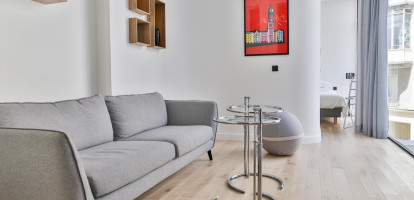


 Français
Français
